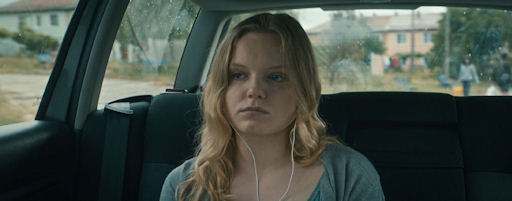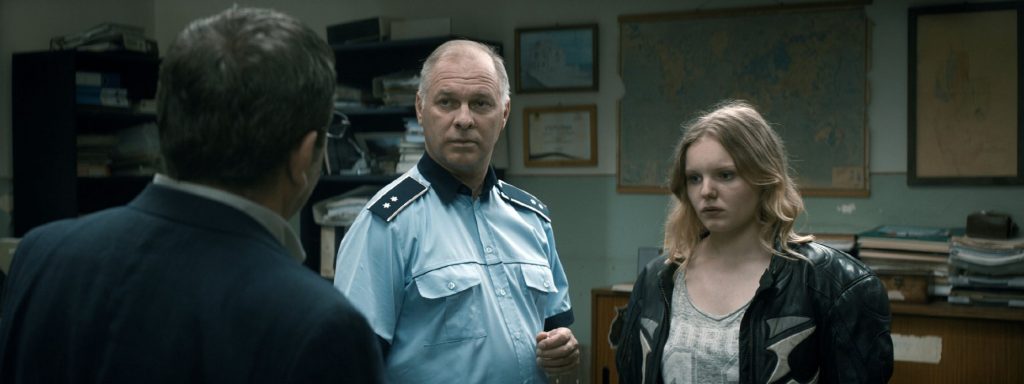
“Graduation,” Cristian Mungiu’s latest exploration into the murky folds of conscience and personal responsibility, features the father-daughter pair of Romeo and Eliza. Romeo is a successful, if underpaid, doctor practicing in a small town in Romania. His daughter, Eliza, is taking college entrance exams while completing high school, running the last lap to an unheard-of scholarship to study in Cambridge. Romeo adheres to his own strict set of moral standards, trying to put himself above the daily corruption that occurs around him. Despite that, he is in an adulterous affair with the younger, and beautiful, Sandra.
The screenplay is a follow-up, of sorts, to the filmmaker’s “4 Months, 3 Weeks and 2 Days,” set during the Ceausescu regime. Two women must obtain and illegal abortion, a crime punishable by death. In this movie it is not physical death, but moral death, that threatens. The country has moved on to democracy but the corruption remains. All that stands between the grinding poverty and the cloying miasma of despair is one’s own code of conduct.
Mungiu develops the story slowly and graciously, suffusing each scene with soft, luscious depth and sonorous spoken lines. There is little background soundtrack to deter from the words and actions of the players. The own itself is cold and barren, stray dogs roam the streets, a reminder that feral instincts are everywhere, barely kept at bay. In the first part of the movie, Eliza is attacked, trauma and a wrist injury making it much harder for her to take exams. She must take them anyway, it is do or die.
There is a feeling, fluttering in the background, that she does not want the life her father has planned for her. This ambivalence sets up the slowly resonating, often unspoken, dialog between the two about her father’s rigid but flawed ethics and her own right to choose her destiny. Eliza is the most pure of the two, but, then, she has hardly lived yet and certainly has not put food on the table. Romeo fails to see that he cannot pay for his sins by launching his daughter into a life of comparative near-royalty. He lives for redemption through his daughter.
The cinematography is so effective it often overtakes the screenplay. At over two hours the story will take longer than American audiences would like. Even so, the play of images across the screen is mesmerizing. The performances are excellent, perhaps even over-studied. There is little spontaneity, the movie is more like a chess game then a tennis match. Mungiu does not dote excessively on Romeo’s growing guilt, he is cast as a man who knows his own faults, excepts them, and sees much worse every day. Even so, a nice tension develops as the quicksand of corruption draws him down.
Powerful acting by Adrian Titieni and Maria Dragus helped Mungiu win Cannes “Best Director” in 2016. Camera work by Tudor Vladimir Panduru takes the viewer inside life in modern day Romania, and into the souls of its people.

Rating: 8/10
. . .
Join us on Facebook at
http://www.facebook.com/itsjustmovies!